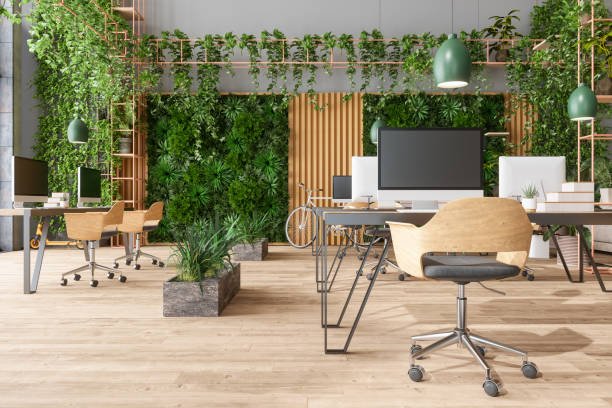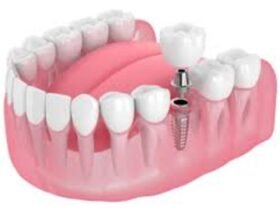As remote work continues to grow in popularity, office furniture has become more crucial than ever. One of the key components of any office setup is the office chair. Gone are the days when comfort was just an afterthought. Today, office chairs are central to the overall well-being of workers, with designs that blend comfort, functionality, and health. The future of office chairs is taking bold steps forward, influenced by evolving trends in technology, ergonomics, and sustainability.
Office furniture is no longer confined to traditional designs and functions. As we spend more time in front of screens and seated at desks, the demand for ergonomic office chairs has skyrocketed. These chairs are carefully crafted to support our posture, reduce strain, and even improve productivity. With the rise of smart technologies and eco-friendly materials, the office chair is transforming into something far beyond a simple place to sit.
Innovations in office chairs now focus on a deeper understanding of human ergonomics, with designs that adapt to individual body shapes and movements. As the workforce continues to evolve, the future of office chairs must not only address comfort but also embrace the tech-savvy and environmentally-conscious trends that are reshaping our world.
Comfort as the New Priority
For many years, office chairs were simply designed to be functional, with little consideration for long-term comfort. However, in recent years, companies have realised the importance of comfort in improving productivity and reducing physical strain. The future of office chairs revolves around personalised comfort, with manufacturers developing chairs that cater to the individual needs of each user.
One of the most significant trends in comfort is the development of ergonomic chairs. These chairs are designed to promote good posture by providing proper lumbar support, adjustable armrests, and seat depth. This ensures that users can maintain a natural, healthy posture even during long hours of work. The chairs also feature adjustable features that cater to different body types, allowing users to find their ideal sitting position.
Additionally, modern office chairs are increasingly incorporating memory foam and adaptive padding into their designs. These materials are designed to mould to the user’s body, providing tailored support to alleviate pressure points. This focus on comfort helps prevent the back and neck pain commonly associated with prolonged sitting, a problem that many office workers face.
Integrating Technology: Smart Office Chairs
Technology is playing a pivotal role in shaping the office chair of the future. As the world becomes more connected, office furniture manufacturers are incorporating smart features into their designs, making office chairs not only more comfortable but also more efficient.
One of the most exciting developments in smart office chairs is the integration of sensors. These sensors can track a user’s posture, monitor their sitting habits, and even send reminders to adjust their position. By analysing the data collected, these smart chairs can provide feedback on how to improve posture, helping users avoid fatigue and discomfort. Some chairs even allow users to set personalised seating preferences, adjusting lumbar support, seat height, and tilt angles automatically based on individual needs.
Moreover, the future of office chairs may also include built-in features to promote movement. Some models are designed to subtly encourage users to change positions throughout the day, preventing the long periods of sedentary behaviour that are so harmful to health. This may include features like automatic adjustments based on sitting patterns or gentle reminders to stand up and stretch at regular intervals.
With the integration of smart technology, office chairs are no longer just a passive piece of furniture; they are becoming active contributors to health and productivity in the workplace.
Sustainability: A Growing Focus
In today’s environmentally conscious world, sustainability is an increasingly important consideration in office furniture design. The future of office chairs will undoubtedly include materials and processes that prioritise environmental impact, with a focus on using recyclable, biodegradable, and non-toxic materials.
One of the most significant trends in sustainable office chairs is the use of recycled materials. Manufacturers are increasingly turning to recycled plastics, metals, and fabrics to create durable and high-quality office chairs. This not only reduces waste but also lowers the carbon footprint of production. In some cases, chairs are designed to be fully recyclable at the end of their life cycle, ensuring that they don’t end up in landfills.
Additionally, sustainable manufacturing processes are becoming more prevalent. Many companies are adopting environmentally-friendly production methods that reduce energy consumption and minimise harmful emissions. This includes using low-impact dyes, water-based adhesives, and reducing the use of harmful chemicals in the production process.
Another innovative approach to sustainability in office chairs is the rise of modular designs. These chairs are designed to be easily disassembled, with individual parts that can be replaced or upgraded without the need for a completely new chair. This not only extends the life of the chair but also reduces waste by ensuring that only the worn-out components are replaced, rather than the entire chair.
Aesthetics and Customisation
The future of office chairs will also see an increased focus on aesthetics and customisation. As more people work from home, the need for office furniture that complements personal spaces is growing. No longer confined to traditional office environments, chairs are being designed to fit seamlessly into a wide variety of home offices and workspaces.
Office chairs of the future will be available in a range of colours, materials, and finishes, allowing users to choose options that suit their personal style and the décor of their workspace. From sleek, modern designs to more traditional, comfortable styles, the variety of options will allow people to create an office that is both functional and aesthetically pleasing.
In addition to aesthetics, customisation options will continue to evolve. With the growing demand for ergonomic designs, office chairs will become increasingly adjustable to suit the unique needs of individual users. This may include features such as adjustable seat depth, backrest angle, and armrest height, as well as memory foam options for personalised comfort. The ability to tailor an office chair to your specific needs will enhance both comfort and productivity.
The Impact on Health and Productivity
As we spend more time sitting at desks, the impact of office furniture on our health becomes more apparent. Poor seating habits can lead to back, neck, and shoulder pain, which can significantly impact productivity. The future of office chairs is focused not only on comfort but also on promoting better health.
Ergonomic office chairs are designed to prevent the strain that comes with sitting for long periods. By supporting proper posture and providing features like lumbar support, adjustable armrests, and seat cushions, office chairs are helping workers stay comfortable and reduce the risk of musculoskeletal problems. The integration of smart technology will also contribute to better health by offering real-time feedback on posture and encouraging movement throughout the day.
With these advancements, the office chair is no longer just a piece of furniture; it’s a tool that enhances both physical well-being and workplace performance. The focus on comfort, technology, and sustainability will continue to shape the future of office furniture, ensuring that workers are better equipped to thrive in the modern office environment.
As we look ahead, it is clear that office chairs are evolving to meet the demands of a changing world. With innovations in design, technology, and sustainability, the future promises a new era of comfort, productivity, and environmental responsibility. The office chair will remain a cornerstone of the modern workplace, adapting to meet the needs of workers while also contributing to a healthier and more sustainable future.


















Leave a Reply